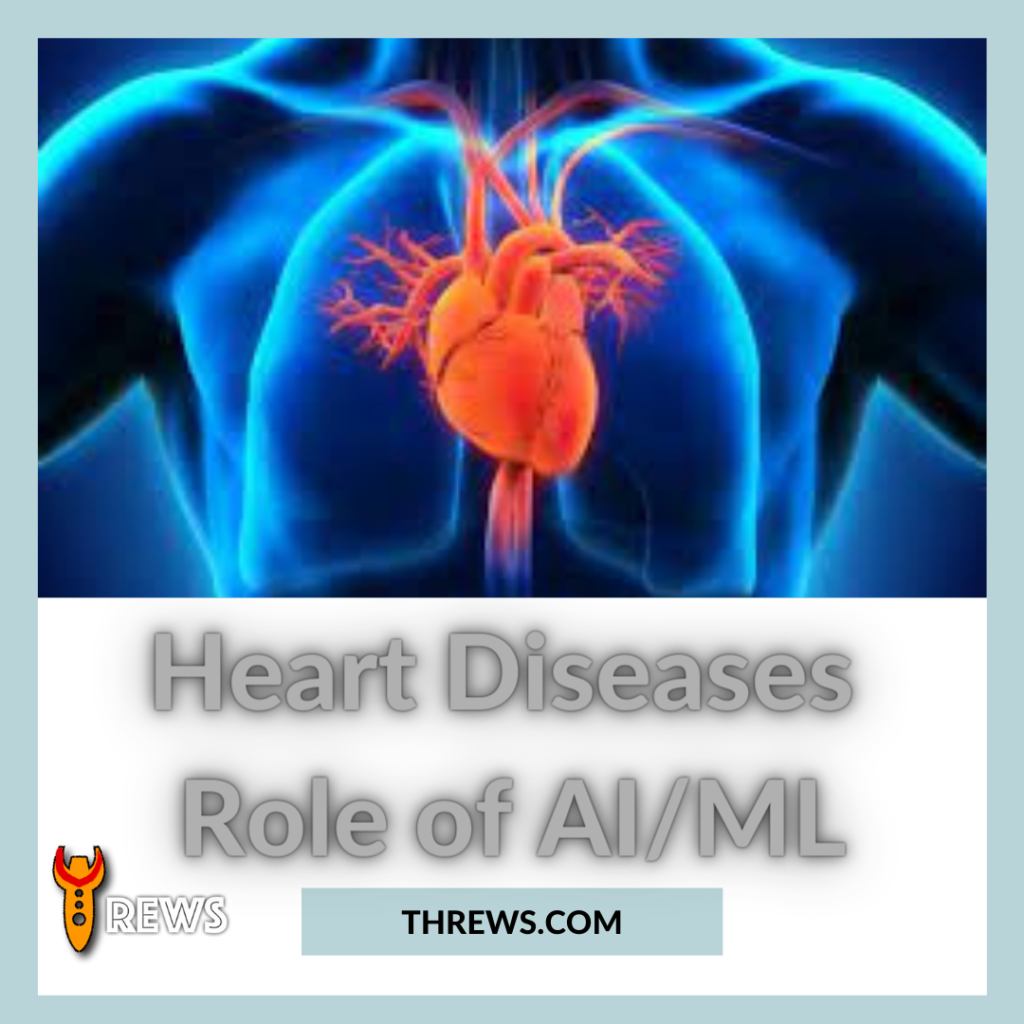Heart diseases are one of the leading causes of death globally, affecting millions of people worldwide. Despite significant advancements in medical technology, the prevalence of heart diseases continues to increase. However, the field of artificial intelligence (AI) and machine learning (ML) is offering new and exciting ways to address this critical health challenge.
In this blog, we’ll dive into the current state of heart diseases, the importance of AI/ML in diagnosis and treatment, and the potential for this technology to revolutionize the way we approach heart health.

I. Understanding Heart Diseases
Heart diseases are a group of conditions that affect the heart’s ability to function properly. Some of the most common forms of heart diseases include coronary artery disease, heart attacks, heart failure, and arrhythmias.
According to the World Health Organization (WHO), 17.9 million people died from cardiovascular diseases in 2016, representing 31% of all deaths worldwide. The primary causes of heart diseases include unhealthy diets, physical inactivity, tobacco use, and high blood pressure.
II. The Power of AI/ML in Heart Disease Diagnosis and Treatment
AI and ML are rapidly transforming the medical field, and heart diseases are no exception. These technologies have the potential to improve diagnosis, risk assessment, and treatment for heart diseases in several ways.
A. AI/ML in Medical Imaging
Medical imaging is a crucial aspect of heart disease diagnosis and treatment. AI and ML can assist doctors in interpreting medical images and identifying heart diseases more accurately and efficiently. For instance, AI algorithms can help analyze X-rays, CT scans, and MRI images to detect signs of heart disease and track the progression of the condition.
B. AI/ML in Predicting Heart Disease Risk
AI/ML algorithms can use vast amounts of patient data, including genetics, lifestyle factors, and medical history, to predict an individual’s risk of developing heart diseases. This information can then be used to personalize treatment plans and take proactive measures to prevent the onset of heart diseases.
C. AI/ML in Personalized Treatment
AI/ML can also play a significant role in personalizing treatment plans for heart disease patients. By analyzing individual patient data, AI algorithms can predict the best course of treatment, including medication and lifestyle changes, for each patient.
III. Conclusion
Heart diseases continue to be a major health challenge worldwide, and traditional treatments have only limited success. However, the field of AI and ML is offering new and exciting solutions to address this critical health issue. From improving medical imaging to personalized treatment plans, the potential for AI/ML to revolutionize the way we approach heart diseases is immense.
In conclusion, while AI and ML are still in the early stages of development, they have the potential to significantly improve the lives of heart disease patients. The future of heart disease treatment is promising, and we look forward to continuing to see the impact of AI and ML on this critical health challenge.
At Threws, we are dedicated to using the latest advancements in AI and ML to tackle the critical issue of heart diseases. Our team of experts is actively working on cutting-edge solutions that aim to improve the accuracy of heart disease diagnosis, predict risk, and personalize treatment plans for patients. If you are passionate about using technology to improve healthcare and would like to collaborate with us on this project, please don’t hesitate to reach out to us at contact@threws.com. Together, we can make a real impact on the lives of millions of people affected by heart diseases.
#HeartDiseases #AIMLinHealthcare #MedicalImaging #HeartDiseaseDiagnosis #RiskAssessment #PersonalizedTreatment #CardiovascularDiseases #WHO #Xrays #CTscans #MRI #Genetics #LifestyleFactors #MedicalHistory #Prevention #FutureofHeartDiseaseTreatment.

